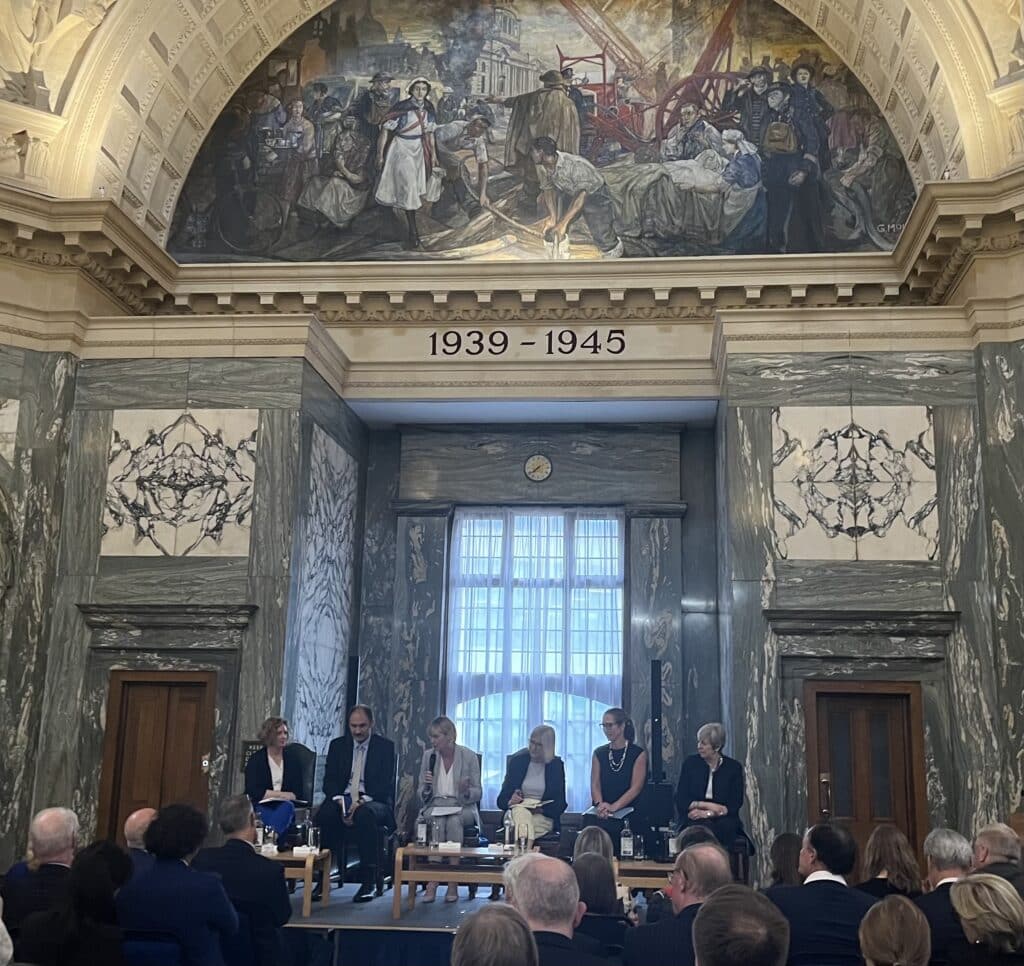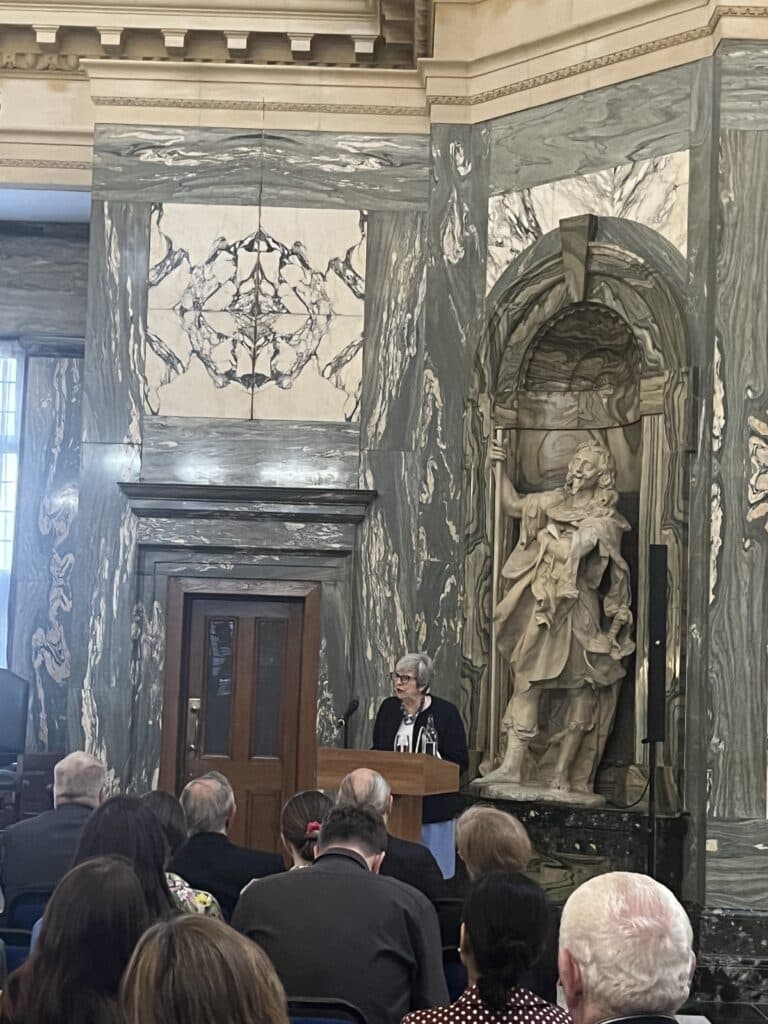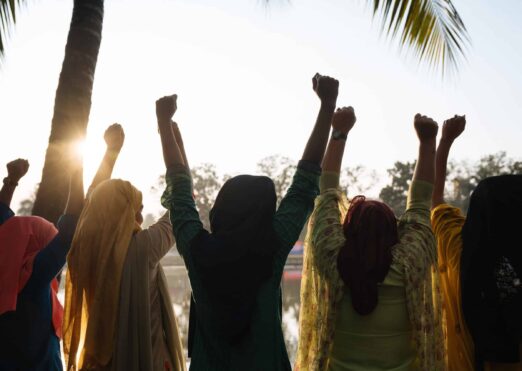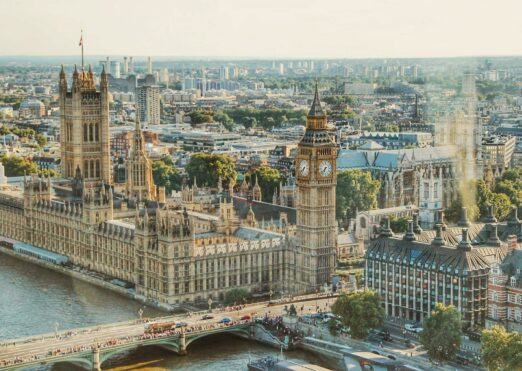Theresa May makes powerful speech at event hosted by Justice & Care and City of London Sheriff
May 2, 2025
The Rt Hon Baroness Theresa May shared stories of modern slavery victims who had their opportunities ‘snatched away by those who profit from their misery’, as she urged business to ‘not turn a blind eye’ to the crime at an event hosted by the Sheriff of the City of London and Justice and Care.
The gathering on Tuesday evening was part of the Shrieval ‘City and Legal’ series of events convened by Alderman and Sheriff Gregory Jones KC of the City of London, supporting financial, legal and professional services and rule of law.
Addressing an audience at the Old Bailey, the former British prime minister issued a bleak warning that the issue of modern slavery has ‘fallen down the global agenda’, but declared ‘we have an opportunity to reverse this evil practice’ by working together.
She used her keynote speech to press the government to hold companies to account, outlining the importance of building on her work on the Modern Slavery Act 2015 by moving business’ responsibilities forward from transparency to action.
It came following a government U-turn to commit to amending the Great British Energy Bill to ensure solar panels made with Uyghur forced labour in China will not be purchased.

Baroness May later joined an expert panel on supply chains, hosted by ITN journalist Julie Etchingham – which included Dame Sara Thornton, formerly the Independent Anti-Slavery Commissioner and Justice & Care’s Policy Research and Advocacy Lead, Louise Gleich.
Caroline Haughey KC, one of the leading prosecutors of modern slavery in the UK, and Alexander Trautrims, Professor of Supply Chain Management and Associate Director at University of Nottingham Rights Lab, were also on the panel.
In her keynote speech, Baroness May brought the stories of modern slavery survivors into the room, including that of a 21-year-old street trader who was later supported by Justice & Care after being brought to an NHS hospital by a powerful Nigerian politician to have his kidney harvested.
‘It’s stories like this that bring to life what modern slavery is – a despicable crime that deprives people of their fundamental rights, their dignity and their humanity,’ Baroness May said.
‘We speak of victims and survivors, but these are individuals, each with a personality, talents, interests, hopes and desires, people of promise who have much to give to the world but whose opportunity to do so has been snatched away by those who profit from their misery.’

Panel members repeatedly warned that the often hidden issue of forced labour is everywhere, with Dame Sara saying ‘it’s a feature, not a bug, in the system… if you’re not finding it, you’re ignoring it’.
Experts on stage discussed the multiple challenges activists on this issue face, including reluctance from some businesses to comprehend the risk and the likelihood that businesses that make the effort to look for it will be shamed for finding it.
While multiple panel members praised the companies out there doing good work, they warned very few were being proactive in searching for forced labour in their supply chains.
Baroness May told the audience we need to ‘mandate companies to take action against forced labour not just ask nicely’, while Caroline Haughey added: ‘It isn’t enough to say “I haven’t done anything wrong”, what did you do right?’
Louise Gleich noted the government had made some good progress, including new guidance on transparency and amendments to the Great British Energy Bill to prevent modern slavery in solar supply chains. But she agreed with Baroness May that new regulations such as mandatory human rights due diligence are needed to build on the Modern Slavery Act 2015.
‘Transparency we know now is not enough’, she said. ‘But when it comes to that second piece in terms of mandatory due diligence legislation, we have a commitment from the government to consider next steps. This, from my point of view, is a good acknowledgment, but as Baroness May said, we need something more. We haven’t yet got a plan or any details on that.’
There are an estimated 50 million modern slavery victims worldwide and 130,000 victims in the UK.
James Clarry, CEO of Justice & Care, said: ‘It was a privilege to welcome Baroness May and our expert panel for this crucial discussion. Thank you to the Sheriff for hosting this event, which has highlighted how it is down to all of us to take action against this crime – not tomorrow, but now.’
Gregory Jones KC, Sheriff of the City of London, said: ‘I’m honoured that Baroness May chose the Old Bailey to make this important speech on a key subject. We could not have got a better panel of experts than we did and I am extremely grateful for the partnership with Justice & Care.’
The most pressing challenges presented by forced or compulsory labour in the UK and its impact on communities were explored in recent research from Justice & Care.
The Global Commission on Modern Slavery and Human Trafficking, which is chaired by Baroness May, recently released ‘No country is immune: together to end modern slavery & human trafficking’, which calls for urgent, collaborative action and offers recommendations to governments, businesses, and civil society to eradicate this pervasive violation of human rights.


